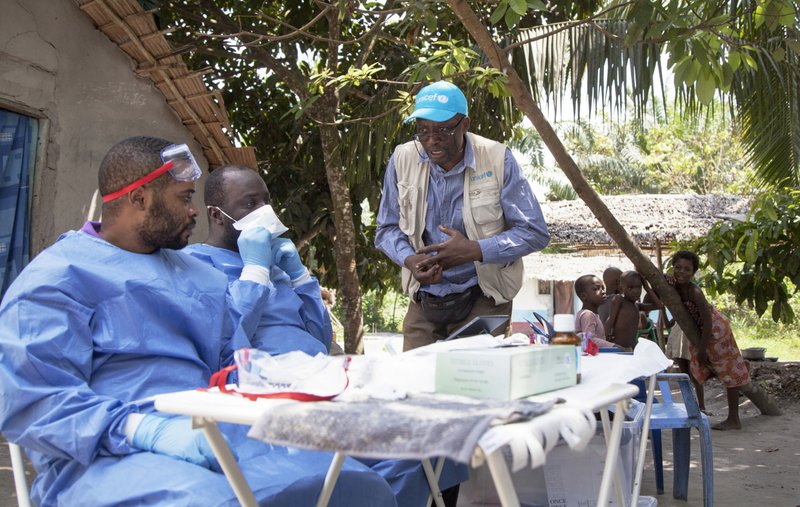KINSHASA, Congo -- Ebola vaccinations will begin Monday in the two rural areas of Congo where the latest deadly outbreak was declared this month, the health ministry said Saturday, as the number of confirmed Ebola cases rose to 35, including 10 deaths.
A vaccination campaign is already under way in Mbandaka, the city of 1.2 million people on the Congo River where four Ebola cases have been confirmed. About 100 health workers have been vaccinated there as front-line workers face high risk from the virus, which is spread via contact with the bodily fluids of those infected, including the dead.
The vaccination campaign will begin Monday in the rural areas of Bikoro and Iboko in the country's northwest, health ministry spokesman Jessica Ilunga said.
"The health minister can be found at this moment in Bikoro for assessing the preparations for the vaccination campaign," Ilunga said.
Of the 10 confirmed Ebola deaths, five have occurred in Bikoro, two in Iboko and three in the Wangata area of Mbandaka.
In addition to the confirmed Ebola cases there are also 13 probable cases and six suspected ones, the health ministry said.
The World Health Organization emergencies chief has said the next few weeks are crucial in determining whether the outbreak can be gotten under control. Complicating factors include its spread to a major city, the fact that health workers have been infected and the existence of three or four "separate epicenters" that make finding and monitoring contacts of infected people more difficult.
World Health Organization Director-General Tedros Adhanom Ghebreyesus said at a meeting in Geneva on Saturday that "I am personally committed to ensuring that we do everything we can to stop this outbreak as soon as possible."
This is Congo's ninth Ebola outbreak since 1976, when the hemorrhagic fever was first identified.
There is no specific treatment for Ebola. Symptoms include fever, throwing up, diarrhea, muscle pain and at times internal and external bleeding. The virus can be fatal in up to 90 percent of cases, depending on the strain.
The World Health Organization is using a "ring vaccination" approach, targeting the contacts of people infected or suspected of infection and then the contacts of those people. More than 600 contacts have been identified.
The organization also is accelerating efforts in nine neighboring countries to try to prevent the Ebola outbreak from spreading there, saying the regional risk is high. It has warned against international travel and trade restrictions.
Information for this article was contributed by Geir Moulson of The Associated Press.
A Section on 05/27/2018
